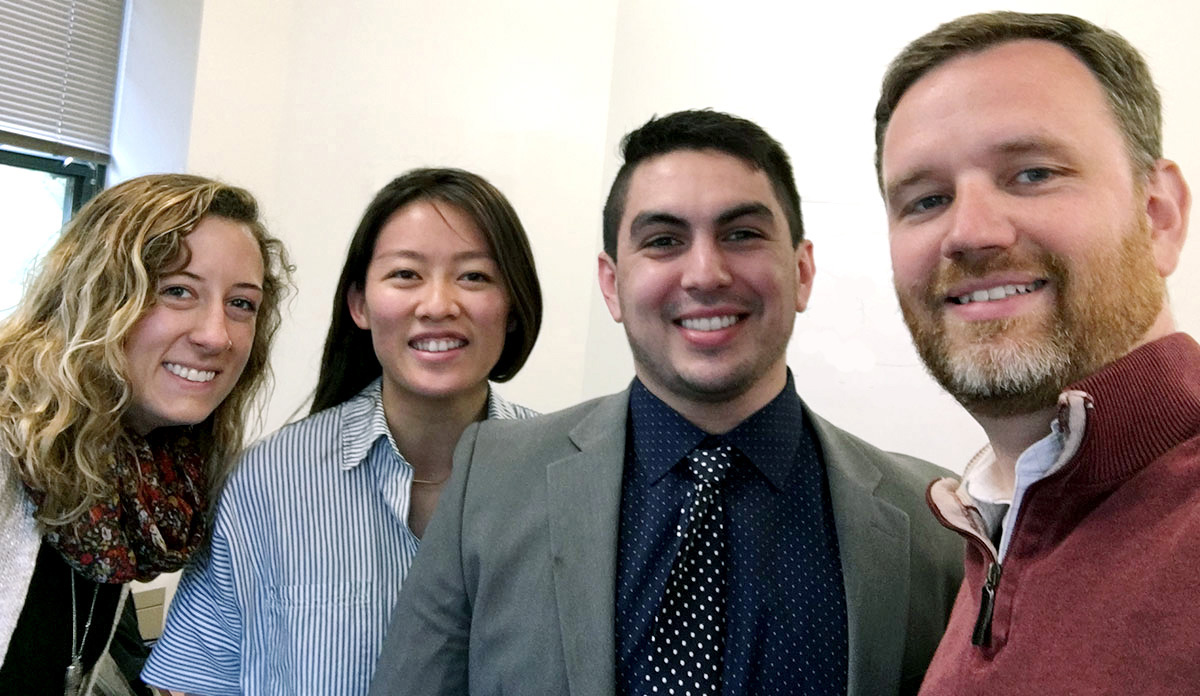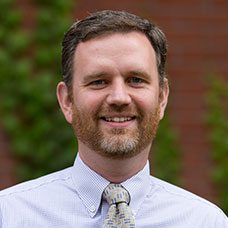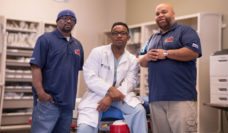2017 was an exciting year for PHP and there is a lot we are proud of. We began the year as a two-month-old publication, with our first post coming on October 30, 2016 during the American Public Health Association meeting in Denver. Since then, we have kept the pace of publishing an article every single weekday other than holidays and a brief summer vacation. This is nearly 250 articles! Enormous credit goes to Managing Editor Melissa Davenport and our team of graduate students for maintaining this ambitious pace. We toasted Melissa at our celebration lunch this week, agreeing that nothing we have accomplished in 2017 would have been possible without her. Special thanks as well to Dean Sandro Galea, Michael Stein, and Catherine Ettman for their support and guidance.
In February we said good-bye to our first cohort of fellows—Nick Diamond, Jon Gang, and Maggie Thomas—whose hard work was instrumental in getting the site off the ground. We welcomed a new group of fellows —Gilbert Benavidez, Maddie Bishop, and Qing Wai Wong—who have been an absolute delight to work with. Getting to know these six students and watching what they accomplish has been my absolute favorite part of Public Health Post.
We have welcomed many distinguished guests to write for PHP, reinforcing our mission that PHP is not a vehicle for promoting research done at Boston University but is about the field and for the field. We have had academics from the University of Wisconsin to the University of Edinburgh. We have featured policymakers and advocates such as Senator William Brownsberger of the Massachusetts Senate and Cory Salzillo of the California Sheriff’s Association. We have also profiled impressive people from Vox’s Sarah Kliff to Karen DeSalvo, former Acting Assistant Secretary for Health in the U.S. Department of Health and Human Services.
We are excited and gratified that so many people are reading PHP. Visitors have come to the site from more than 100 countries and almost every state in the United States.
I like end of year lists and so I thought our audience might be interested to know which articles have received the most attention on PHP in 2017. This list is biased in favor of older articles, but here are the Top 5 most read articles in 2017, along with a quote or two which I think encapsulates the article:
Top 5 Articles of 2017
1. Arguments, Evidence, and Abortion Policy by Marian Jarlenski of the University of Pittsburgh School of Public Health, published June 19th. “Instead of making a moral argument to women, these laws are requiring providers to make face scientific arguments to women.” “There is an opening [right now] for a conversation, an honest conversation, about [abortion] and about what research might tell us. We just can’t hear each other in the cacophony.”
2. Living with Purpose by Trish Scanlan of Tumaini la Maisha, published March 1st. “Beating cancer once is a miracle of modern medicine. Surviving it a second time is a rare privilege afforded very few. I should know. I’ve done both recently while working with children with (often late stage) cancer in a resource-limited setting.”
3. So Tired You’re Stressed, So Stressed You Can’t Sleep by Jonathan Gang, former PHP Fellow, published December 5, 2016. “For the students reading this, take a deep breath. Put down the books for a moment. Take a walk. Drink some tea. Throw on some music. Chill out for a second. Feel better? Good. Now here’s the most important part: if it’s after dark and your studies have stretched into the wee hours of the night, shut your laptop, put away your smartphone, and go to bed.”
4. Understanding the US Maternal Mortality Problem by Gene Declerq, Professor at the Boston University School of Public Health. “The US has ranked behind most industrialized countries on maternal mortality for years, but the US stopped publishing an official maternal mortality ratio in 2007. It was this failure of the U.S. to publish a maternal mortality ratio that was the impetus for our study.”
5. Why Porn is a Public Health Issue by Gail Dines, Chair of American Studies at Wheelock College. “Extensive scientific research reveals that exposure to porn threatens the social, emotional, and physical health of individuals, families, and communities. These impacts highlight the degree to which porn is a public health crisis that undermines women and children’s human rights.”
I think this list epitomizes the vision I articulated in my inaugural post 14 months ago, that “I hope PHP feels like a good dinner party. We will introduce you to interesting people and provocative ideas. We hope you will laugh and be inspired. We expect that you won’t agree with everything you read.”
Thank you for a great year and see you in 2018!
Left to right: PHP 2017 Fellows Madeline Bishop, Qing Wai Wong, Gilbert Benavidez, and Editor-in-Chief David K. Jones.













